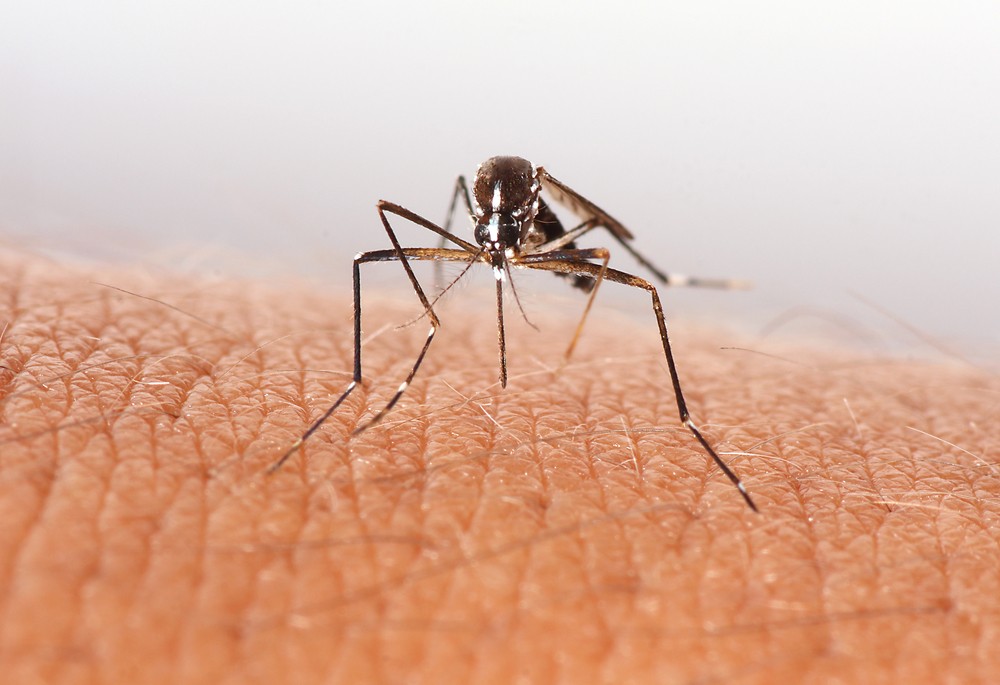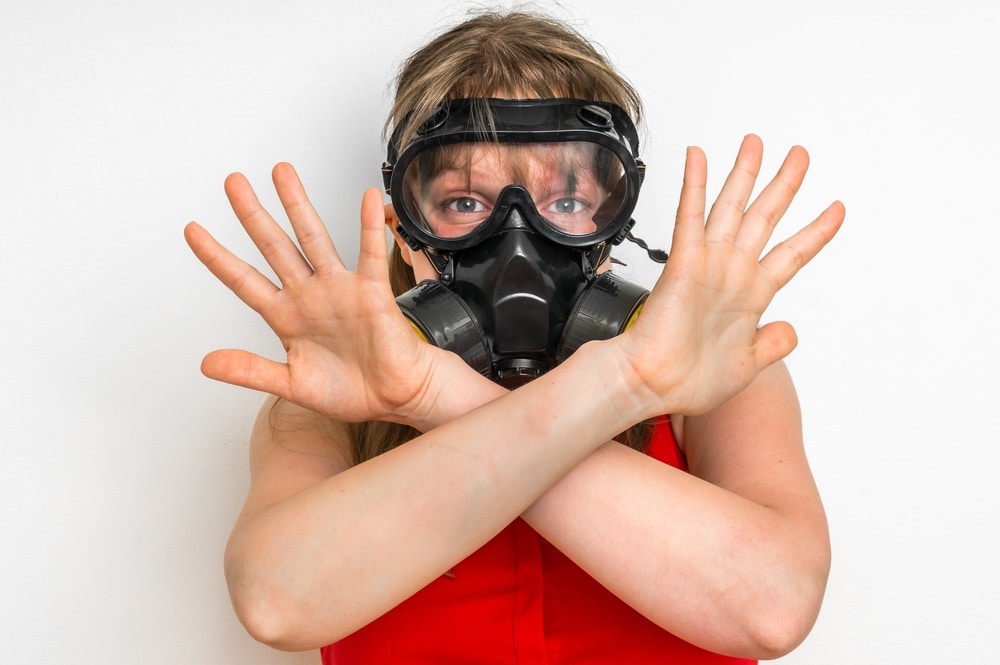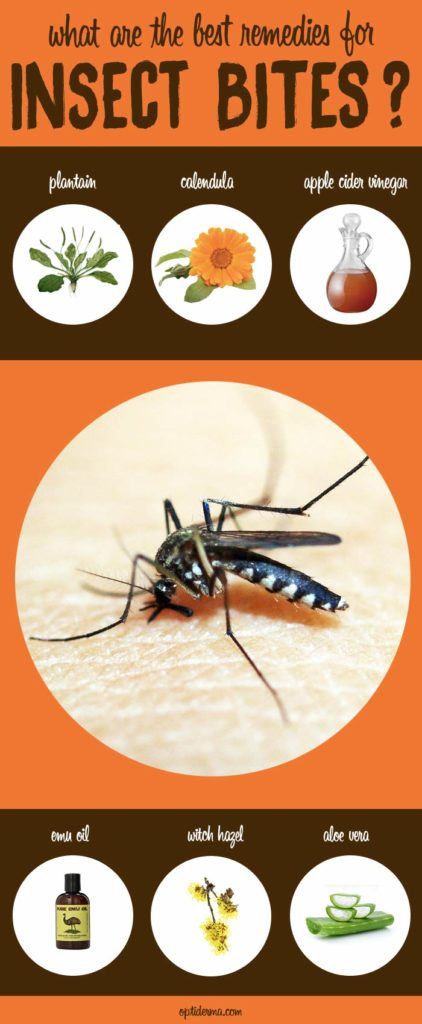What Makes a Great Pest Control Company?

Every company has a story and Douglas Karr of the Off the Circle podcast asked us to share ours. We’re serial entrepreneurs and have worked across several industries. Over the years, we’ve identified what makes businesses perform well and what doesn’t.
With regard to the pest control industry, we saw an industry with several issues:
- A lack of competition aside from huge national brands that didn’t have a stake in the local region.
- Intense sales pressure for unnecessary contracts and excessive treatments for extermination services.
- Unlicensed staff that applied chemical treatments requiring much more attention.
- Poor expectations set by uneducated staff that really don’t understand how to prevent and rid homes and businesses of pests.
We still see these issues with our competitors, even new ones that are unlicensed and using dishonest sales and marketing strategies to compete with us. It’s of no concern, though, as word of mouth continues to be the best resource for growing our business. Read our reviews and speak to our clients and you’ll find that we work to exceed expectations and carefully educate our clients with every service call.
As a business owner or homeowner, we know how frightening or embarrassing having a pest problem can be. We’ve been there – that’s why we started the business! But pests aren’t your fault – virtually every pest is seeking food or a place to lay their nest that just happens to be in your business or home. We’ll help you understand how they got there, how to pre-treat, how to rid yourself of them, and how to keep them from coming back.
What you’ll find with Freedom Pest Control:
- We are your neighbors and have worked in central Indiana all our lives.
- We do not push sales contracts and promise to only provide the treatments that are necessary.
- We are licensed and you can look us up at the Office of Indiana State Chemist website. Select the second tab, Pesticide Businesses, and search for the business name. The business should have Category 7A recorded online.
- We continue to educate ourselves on treatments, pests, and pest control strategies through our membership in both the National Pest Management Association and the Indiana Pest Management Association.
Read our post on How to Select a Pest Control Company for more information.
We know that the best way to grow our business is to provide superior service to our customers. And it’s working! Got a question? Feel free to give us a call!
Note: If you’re reading this post via our feed or email, click through to Off the Circle to listen to our interview, From Pests to Alarms, We’re Talking Home Service Companies.
How to Treat Insect Bites and Stings

Even when you’ve done your best… wearing long sleeves, rugged pants, a hat, light clothing, or even put on repellent, it never fails that when the warm weather hits we’re going to get bitten by bugs.
PLEASE READ: Bites and stings can be deadly. If you’re reading this because your child has been bitten or stung, please get them immediate care at the local emergency room. Children are much more susceptible to allergic reactions. Adults are also susceptible, so it’s always recommended to seek assistance from a medical professional immediately if you have fever, chills, nausea, vomiting, chest pain, severe sweating, slurred speech, trouble breathing, swelling, or other symptoms.
Venomous insects lead the list of deaths in the United States, with 90 to 100 people dying each year from the bee sting complications – typically allergic reactions leading to anaphylactic shock and death from complications. Additionally, wasps, hornets, fire ants, scorpions, and spiders can also inject venom.
Non-venomous insects like mosquitos and ticks can spread disease and also cause allergic reactions. Recently, a young girl at Riley Hospital for Children at IU Health tested positive for Rocky Mountain Spotted Fever from a tick bite and died a few days later.
Leave, Remove, Clean, and Treat
Before you decide to treat your insect bite or sting yourself, you’ll want to take some steps first:
- Move away from the area you were bitten or stung. You don’t want to attract more bees or insects and wind up with more bites or stings.
- Remove any bug, stinger or the jaws of the insect that may be left. Do this carefully to ensure you don’t leave anything in the wound.
- Clean the area with mild soap, rinse, and dry off.
- Treat the symptoms by applying oils, ointment, or taking medication.
Do topical treatments actually work?
You may be surprised to find there’s a lack of evidence that oils and ointments actually work. A study in the UK (which excluded ticks, mites, and lice) found that with or without topical treatments, bug bites and stings generally took the same time before discomfort disappeared or swelling dissipated. Personally, I still think a cold compress and some aloe felt better… I don’t care if it was all in my head!
Symptoms of Insect Bites and Stings
The human body is quite amazing and our ability to fend off complications with bug bites is incredible… but bites can lead to many problems, including:
- Itching – when insects bite, their saliva or venom also injects histamine. Histamine causes our muscles to contract and our blood capillaries to dilate. This is why treatment of bites often includes the use of an antihistamine.
- Hives – some people experience hives and swelling over their entire body from the allergic reaction to a bug bite.
- Rashes – while most insect bites are identified with local swelling, the histamine can also produce a widespread allergic rash beyond your bite area.
- Swelling – along with rashes, your body may have a mild or severe allergic reaction that intensely swells the area. For immediate relief, you can apply ice packs to reduce swelling.
- Blisters – the reactions of bug bites often cause fluid-filled areas called bullae or circular areas called weals. Blisters may be a sign of a more serious reaction and may not appear immediately.
- Ulcer – a dark region called an eschar may appear from a venomous bite after a blister. Get medical assistance immediately for assistance.
Outside of allergic complications, the worst thing you can do with a bite is to scratch it. Scratching can create an open wound that’s highly susceptible to infection and infection can lead to many more complications, including scarring. Try to immediately the relieve the itching so that you’re not tempted to scratch the area.
Natural Antihistamines for Insect Bite and Sting Treatment
In mild cases, you may be able to ingest a natural antihistamine to help fight the histamine release of insects. Healthline lists these 4 best natural antihistamines.
- Stinging Nettle – Freeze-dried nettles can be found online and at health food stores and has been found to relieve the symptoms associated with histamines.
- Quercetin – found in grapefruit, apples, okra, and red wine, or as a supplement, Quercetin helps relieve the side effects of allergies.
- Bromelain – found in pineapples and supplements, it’s also been found to alleviate breathing and inflammation complications associated with allergies.
- Vitamin C – good old Vitamin C has been found to be a great natural antihistamine and it’s found in many fruits and vegetables as well as in supplements. It’s also non-toxic and free of side effects!
Natural Topical Remedies for Insect Bite and Sting Treatment
There are natural remedies that can be applied to your bug bite to help alleviate itching and swelling. This article from Optiderma points to 6 natural remedies:
- Emu Oil – Emu oil is extracted from the fat of the emu bird, can relieve the itching and swelling and can help your bit heal faster without scarring.
- Calendula Cream – relieves irritation and itching and provides antiseptic benefits. A blister can be also be treated by applying calendula ointment on it.
- Apple Cider Vinegar – unpasteurized and organic apple cider vinegar with sediment applied to bug bites can relieve itching and burning. Dilute it if your skin is sensitive and dab it on the wound with a cotton ball or swab.
- Witch Hazel – helps calm itching caused by bug bites. It contains tannins that have a mild anesthetic effect. Apply it on the bite for 10 minutes using a cotton ball.
- Aloe Vera – fresh aloe vera applied a few times a day will relieve your itching with its natural compounds and amino acids. It’s also a soothing gel that will assist in healing.
- Plantain – Native Americans chewed plantain leaves and applied them to insect bites and bee stings. You can shred the leaves and apply it directly to the area to stop the itching of allergic rashes and promote healing.
Over the Counter Insect Bite and Sting Treatment
There are some outstanding oils and ointments that provide incredible relief from the itching and swelling of insect bites and stings that you can find at your local pharmacy or store.
- Hydrocortisone Creams – Hydrocortisone is a corticosteroid and works by activating natural substances in the skin to reduce swelling, redness, and itching.
- Oral Antihistamines – diphenhydramine (Benadryl Allergy and generic) can help ease burning or itching. These can cause drowsiness, so use with caution.
- Pain relievers – as acetaminophen (Tylenol and generic), ibuprofen (Advil and generic), or naproxen (Aleve and generic) can help alleviate the pain associated with the bite or sting.
Do We Recommend D-I-Y Extermination?

We’re not adamantly opposed to do-it-yourself extermination in some cases, but most pest problems call for a great, licensed pest control professional. Home owners, restaurateurs, and commercial real estate managers can get easily frustrated and wind up in more trouble, spending more money than they had imagined. There are several reasons why:
- Pests found their way into your home and business somehow. It’s not just about treating the affected space and putting out poison, it’s about figuring out how they were able to get there in the first place. Our technicians know how and where to look for places that are vulnerable to pests. If you don’t find the entry points, you’re just going to have the problem keep coming back. And each time a pest returns, the damage typically grows.
- Chemicals for pest control can impact your family and pets. Some chemicals have great potency but don’t last long, ensuring the pest is exterminated without leaving behind a problem that could impact your household or business. Store-bought chemicals may not have the quality and effectiveness of commercially available treatments. And every chemical requires special care for handling and how it’s disposed of.
- Experience is worth the investment when it comes to pest control. Our technicians are trained, licensed, and experienced. Without experience, D-I-Y extermination often doesn’t last, can produce more costly problems down the road, and may even cause you to get sick when working with the treatments.
- Education on treatments and pests is ongoing. Our relationship with Purdue keeps us knowledgeable of regional issues and our partnership with the National Pest Management Association keeps our technicians knowledgeable of treatment changes, new methods, and any other issues that could arise.
Investing in a reputable pest control company will often have a great return on investment instead of attempting to do-it-yourself. Not a day goes by that we hear from a customer, “We tried…” and the customer spent time, funds, and frustration in dealing with the problem. Give us a call and we’ll get you taken care of.
How to Keep Mosquitos Away? Prevention, Natural, and Chemical Remedies

Did you ever wonder what bug kills the most humans? We got your answers, right here.
Mosquitos are responsible for over 1 million human deaths, according to the World Health Organization. Mosquitos are the number one human killer to fly across this earth. With over 3,000 identified mosquito species, there is nothing small or innocent about the mosquito family. But the mosquito isn’t what’s killing humans, it’s the diseases they carry with them, such as malaria.
Luckily, here in Indiana mosquitos aren’t a deadly problem. In fact, between the years of 1957 and 2015, only 63 cases of malaria outbreaks due to mosquitos were reported in the United States.
Just because we are no longer at risk for these dangerous diseases doesn’t mean we don’t want to prevent these pesky mosquitos from biting. As family summer fun begins, so does the mosquitos fun. Here are some tips to avoid being bit during your next vacation or summer hang.
How to Keep Mosquitos Away
The best action is always preventative action! Clear any puddles or containers from your land that can fill with water. Mosquitos lay their eggs in stagnant water or very moist soil… and those eggs hatch when under water. A single female mosquito with a lifespan of 42 to 56 days can lay up to 300 eggs every few days!
Male mosquitos last about 10 days… so you can see how quickly a population of mosquitos will grow given the right weather and a damp place to hatch.
People often believe that all pest management professionals do is spray chemicals to treat their homes. This is simply not true anymore. Many pest management professionals today use an Integrated Pest Management approach. IPM controls pests by getting rid of the three things they need to survive: food, shelter, and water.
How to Avoid Being Bit By Mosquitos
- Avoid sweating – mosquitos are attracted to warm bodies and sweat, so try to stay cool for the summer. Mosquitos can even detect blood type and are often attracted to pregnant women because they produce more carbon dioxide than men do.
- Wear mosquito repellant – The most effective mosquito repellents tested by Consumer Reports contained a variety of ingredients, including DEET, picaridin, oil of lemon eucalyptus, chemicals called IR3535 and 2-undecanone, as well as a variety of plant oils, such as cedar, citronella, geraniol, lemongrass, and rosemary.
- Refresh your repellant – every four hours or per the instructions on the bottle.
What is DEET?
DEET (/diːt/) or diethyltoluamide, is the most common active ingredient in insect repellents. It is a slightly yellow oil intended to be applied to the skin or to clothing, and provides protection against mosquitos, ticks, fleas, chiggers, leeches, and many biting insects.
DEET continues to be the most effective mosquito repellent there is. When applying any repellent containing DEET be sure to protect eyes. If DEET gets into your eyes, it may cause irritation and watery eyes. If you accidentally get DEET into your eyes, be sure to rinse your eyes out for 10-15 minutes immediately upon exposure. After rinsing out your eyes, rest for a while. If irritation and redness continues, call poison control. DEET may cause some skin irritation if left on the body too long, however, it’s rare. If irritation does occur it may be that you’re allergic to DEET.
Are there Natural Remedies to Protect Yourself from Mosquitos?
If you are concerned you are allergic to mosquito repellent or just wish to avoid it, there are other natural ways to protect yourself from mosquitos:
- Skip the floral clothing and fragrances – wear light or neutral clothing without floral scents so that you’re not mistaken as an animal of foliage that will attract mosquitos.
- Wear loose clothing that covers up as much of your body as possible, providing less skin to land and bite on.
- Use Citronella plants, torches, candles, and lotions were once widely known for keeping the mosquitos away.
- Lemon Eucalyptus oil can be used to repel mosquitos.
- Rubbing baby oil or imitation vanilla extract on your skin also repels biting insects.
- Rubbing on Apple cider vinegar is also reported as a way to keep those pests off you. Incorporating apple cider vinegar in your everyday diet may also help!
These natural remedies have been known to work. However, DEET is known to work more effectively than any other remedy. If you’re worried you may have irritation or an allergic reaction, try applying the DEET on a small patch of skin and waiting it out for an hour. If no irritation occurs you may be alright!
PS: Did you know the plural of mosquito is either mosquitoes or mosquitos? We didn’t until we researched this article!
Can You Die From Bed Bugs?

Get ready to get the itchies… yes. Bed bugs aren’t typically carriers of any deadly disease, but their bite can lead to complications and even death. Don’t believe us?
Medics rushed Mary Stoner, age 96, to the emergency room just two days after being removed from her caretaker’s home in Hanover, Pennsylvania. Ms. Stoner passed away; her body covered in a rash. The rash led to an autopsy that revealed Ms. Stoner developed a sepsis infection.
Sepsis is a blood infection caused by a body’s immune system working overtime to fight other infections. In a worst-case scenario, sepsis can result in death due to a life-threatening drop in blood pressure.
Ms. Stoner’s infections were caused by bed bug bites – a result of a massive infestation of insects throughout the home, including bed bugs. The caretaker was charged in this case with manslaughter. An officer who visited the house reported insects crawling on the walls and bed in the room where Ms. Stoner was staying. Another disabled adult in the home was covered in bugs as well. Yikes. In the event you have a problem, there’s no time to waste.
Because bed bug infestations are becoming more commonplace, some bed bug species are becoming more resistant to typical pesticide treatments. The caretaker stated that she tried to rid the house of the bugs but was unsuccessful and could not afford an exterminator. It’s critical that you contact us immediately so we can put an end to the infestation.
So, although quite uncommon, complications from a bed bug infestation could lead to life-threatening conditions!
If you travel frequently, be sure to read our article on how to prevent bed bugs from hitchhiking home with you. We provide details on how to check your hotel room, what kind of luggage to purchase, and what to do when you get home. And, given the chance that you have brought them home, you can download our bed bug pre-treatment checklist and give us a call.

